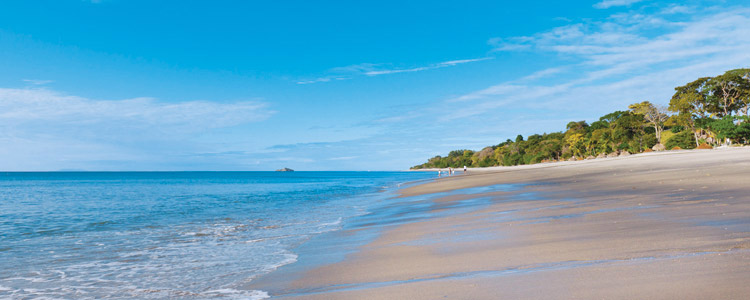5 Strategies to Cope with Recovery Stress on Vacation
Every August, my family takes a vacation to Cape Cod. It was something I looked forward to every year, but in the years my eating disorder was in control, I started to dread it.
Vacations are supposed to be about fun and relaxation, but for me they became a huge source of stress. Not knowing what we would be doing or eating next was a huge challenge to face without anxiety, and it took time and practice in my recovery to learn to let go and truly enjoy myself.
Here are some strategies you can try to help combat stress and negative thinking on vacation:
1. Communicate with the people on your trip.
I’ve been told to “just relax” more times than I can count. It’s frustrating and feels invalidating to how tough it can be. But for people who have never been in recovery, the notion that a vacation can be stressful and challenging probably isn’t the first thing that comes to mind. Help the people on your trip understand by checking in with them before the vacation starts. Let them know that you are stepping out of your comfort zone and might need some extra patience from them. This is their vacation too, and it will benefit everyone if you can all discuss what will/won’t be helpful for your recovery. This can help eliminate any confusion or guilt and will reinforce your support network before the vacation begins so nobody is walking on eggshells.
2. Stay connected with resources and support groups.
Sometimes, the people we vacation with aren’t our best or enough of a support network. If you have a treatment team back home, set up a plan to email, Skype, text, call, or send a carrier pigeon. Do the same with a friend or trusted resource online if you need. The point is not to be constantly talking with them throughout your entire trip, but having that support and guidance there can be reassuring even just for a quick pep talk if any negative thoughts start cycling. A few years back I had a therapist I occasionally Skyped with when I was on vacation. It was helpful to briefly check in and ground myself before she encouraged me to get my butt back to the beach.
3. Take a vacation from social media, too.
Instagram: the place where somehow everyone else’s vacation is cooler than yours!
Don’t get me wrong, I love social media and often use it for pro-recovery reasons because there are so many awesome accounts out there supporting the eating disorders community. But whenever I take a break from Facebook, Twitter, and Instagram I suddenly feel a relief of this tension I didn’t even realize I was holding on to. It’s easy to see other people enjoying themselves on social media and feel like something is wrong with you. I’d recommend taking breaks any time of the year, but especially when you’re on vacation and already feeling some stress, this is a good opportunity to unplug and focus on living in the moment.
4. Choose your weapon.
I realize I’m talking about vacations as if we’re going into battle—I even used the word “combat” at the start of this list. I’m an advocate of recovering with a sense of humor and pointing out ED’s ridiculousness when I’m feeling restrictive. It is still real and challenging yourself on vacation is like swiping a sword at ED.
So what is it going to be? Pre-plan your vacation challenge. Constantly pushing ourselves a little bit out of our comfort zones is how we grow and change. On vacation, it helps bring us back to a place where we remember that it is okay to let go.
I remember the summer on Cape Cod that I got ice cream again. Nothing horrible happened. I got to celebrate the little victory with my friends. You can call me a gladiator.
5. Choose your self-care.
Reminder: vacations are supposed to be about fun and relaxation. That can be different for everyone, no matter what your circumstance. As important as it is to have your support network, appreciate what’s around you and challenge yourself, it’s also important to still have something familiar and comforting to fall back on.
If you want to leave the beach early and watch House of Cards, do it! Bring along a movie, book, videogame, or something else that relaxes you and don’t feel guilty for spending some time to yourself. Having something familiar, however small, can be really helpful when you’re faced with lot of uncertainty in the day. The key is always balance. So: reading Harry Potter on the beach now, ice cream later.
Kate Leddy is a recent graduate from the University of Massachusetts Amherst. She runs a pro-recovery food blog on Instagram @pbvibe.




